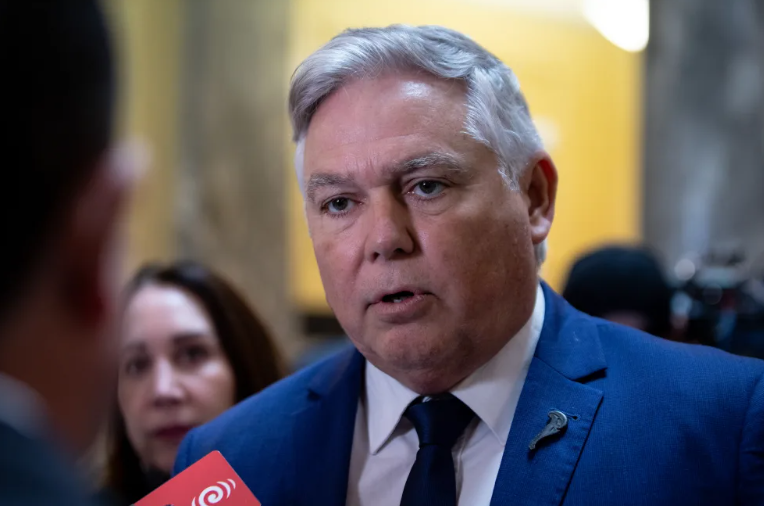
The government says it is moving to give police back the rights to collect intelligence undermined by recent court rulings.
RNZ has been asking where this legislative move promised by the Prime Minister for the third quarter has got up to.
Cabinet had decided to amend the Policing Act, to "reaffirm police's ability to gather intelligence in public places, and expand police's powers to temporarily close areas in response to antisocial behaviour or public safety risks".
A key recent Supreme Court case ruled out police using a photo they just happened to take of the passenger of a car to convict them.
The "Tamiefuna case" had been held up by defence lawyers as setting important limits on police powers.
Police Minister Mark Mitchell said on Thursday police had been left uncertain about taking people's photos and recording their images in public places.
"Recent court decisions have created uncertainty around police's ability to record images in public places for lawful purposes," he said.
"The proposed amendments will reaffirm the prior common law position, making it clear that police can collect and use images in public spaces, and in places where police are lawfully present, for all lawful policing purposes.
"This includes intelligence gathering and crime prevention and other policing functions and associated activities."
Police have had to make big changes since 2020 to find and delete thousands of photos they took, especially of young Māori, after the Privacy Commissioner found their standard photo-taking and some fingerprinting practices they had undertaken for years were unlawful.
Earlier, law scholars raised a warning over whether the government would try to grant police intelligence-gathering powers not seen in New Zealand before.
But the government said the amendments were about reaffirming and restoring police rights.
Mitchell said the law changes would help police detect crime, mount prosecutions and respond to threats from gangs and organised crime.
The amendments would also extend to letting police shut off more areas, not just roads, in an emergency or disorder.
They would have more powers to "detain and move individuals who refuse to leave closed areas".
He said the law changes proposed will revert back to what police used to do for lawful policing purposes.
Mitchell promised strict oversight and accountability, and that police would act with discretion.













